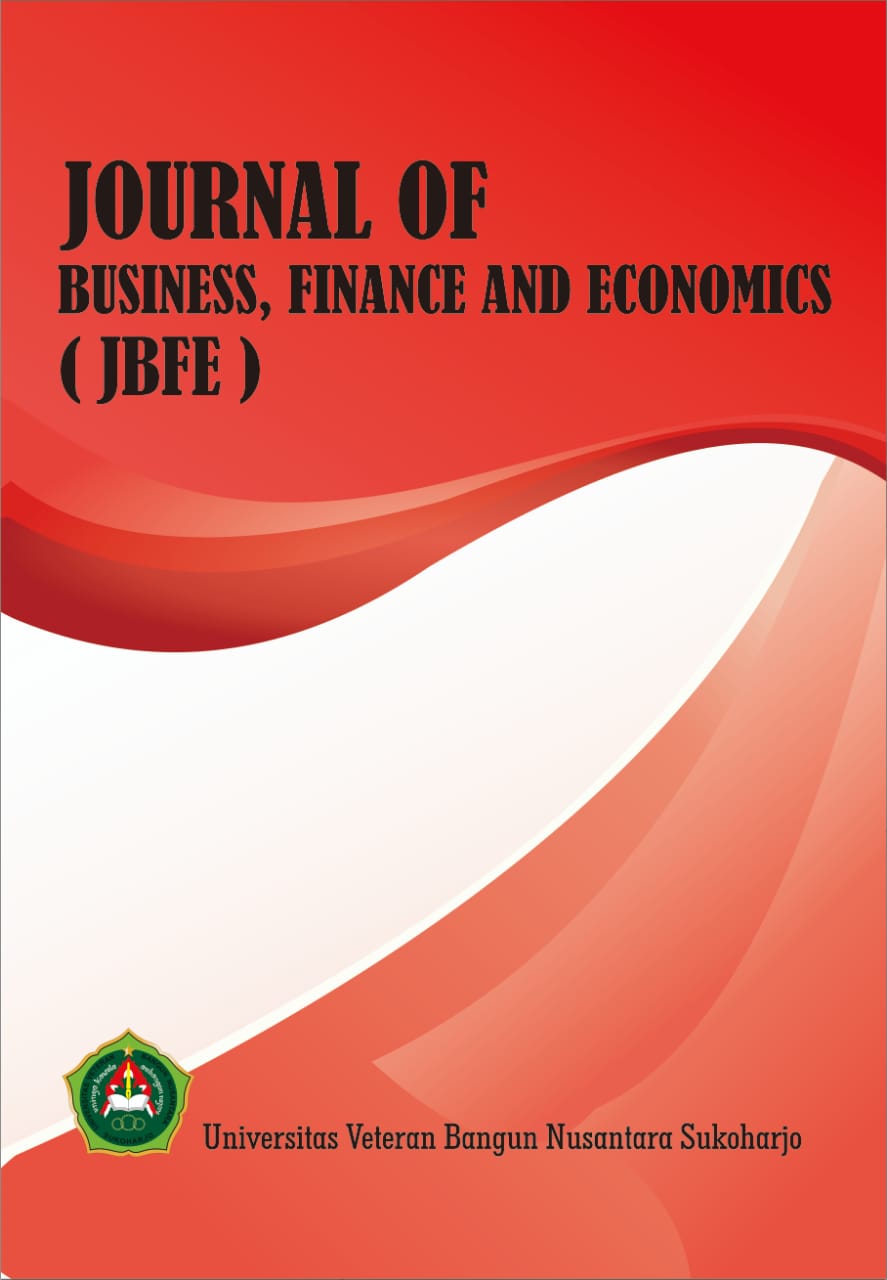Peran Tenaga Kerja dalam Membangun Ekonomi Daerah di Nusa Tenggara Barat
DOI:
https://doi.org/10.32585/jbfe.v6i1.6552Keywords:
Labor, Regional Economic Development, West Nusa Tenggara (NTB)Abstract
This study discusses the role of labor in the development of Islamic economics in West Nusa Tenggara (NTB) which faces significant challenges, such as the mismatch of skills with the needs of the labor market and the lack of education and training infrastructure. This study uses a literature study method to identify various forms of labor contributions in sectors such as agriculture, tourism, small industries, and the formal sector. The results of the study indicate that an activated and educated workforce has a significant impact on productivity, competitiveness, and sustainability of the regional economy. Labor in the tourism sector, for example, increases the number of tourists and regional income, while in the agricultural sector, modern technology strengthens production output. The conclusion of the study emphasizes the importance of developing education, vocational training, and synergy between the government and the private sector to maximize the potential of the workforce, strengthen economic competitiveness, and improve the welfare of the NTB community.
Downloads
References
L. Afriyana, E. Salmah, S. Sriningsih, and I. Harsono, “Analisis dampak pembangunan infrastruktur terhadap pertumbuhan ekonomi inklusif pada kabupaten/kota di Provinsi Nusa Tenggara Barat tahun 2016–2021,” *Elastisitas: J. Ekon. Pembang.*, vol. 5, no. 1, pp. 1–10, 2023, doi: 10.29303/e-jep.v5i1.70.
Y. Agustini and E. P. Kurniasih, “Pengaruh investasi PMDN, PMA, dan penyerapan tenaga kerja terhadap pertumbuhan ekonomi dan jumlah penduduk miskin kabupaten/kota di Provinsi Kalimantan Barat,” *J. Ekon. Bisnis dan Kewirausahaan*, vol. 6, no. 2, p. 97, 2017, doi: 10.26418/jebik.v6i2.22986.
L. Arsyad, “Ekonomi pembangunan dan pembangunan ekonomi,” *Ekon. Pembang. Berkelanjutan*, vol. 5, no. 1, pp. 1–37, 2015.
M. Awaludin, S. Maryam, and M. Firmansyah, “Analisis faktor-faktor yang mempengaruhi penyerapan tenaga kerja pada sektor industri kecil dan menengah di Provinsi Nusa Tenggara Barat,” *J. Konstanta Ekon. Pembang.*, vol. 2, no. 1, pp. 156–174, 2023, doi: 10.29303/konstanta.v2i1.461.
I. O. P. Ayunda, N. K. Sumbawati, and B. D. P. Pamungkas, “Analisis strategi pengembangan ekonomi lokal masyarakat pesisir di Desa Labuhan Bajo,” *J. Analisis*, vol. 14, no. 1, pp. 148–161, 2024, doi: 10.37478/als.v14i01.3748.
A. Febianti, M. Shulthoni, M. Masrur, and M. A. Safi, “Pengaruh tingkat pendidikan, umur, jenis kelamin, dan pengalaman kerja terhadap produktivitas kerja di Indonesia,” *J. Sahmiyya*, vol. 2, no. 1, pp. 198–204, 2023.
M. Firmansyah, Sahri, M. Irwan, and S. Maryam, “Perubahan struktur ekonomi Provinsi Nusa Tenggara Barat,” *Elastisitas: J. Ekon. Pembang.*, vol. 6, no. 2, pp. 12–19, 2024. [Online]. Available: https://elastisitas.unram.ac.id/index.php/elastisitas/article/view/199
A. Manggala Putra, H. Fuadi, and T. Handayani, “Analisis transformasi tenaga kerja dari sektor pertanian ke sektor non pertanian di Desa Pemepek, Kecamatan Pringgarata, Kabupaten Lombok Tengah,” *J. Konstanta*, vol. 2, no. 2, pp. 1–17, 2023, doi: 10.29303/konstanta.v2i2.717.
A. Parhusip, “Pendidikan dan pelatihan vokasi untuk menciptakan lapangan pekerjaan (Studi kasus Balai Besar Pelatihan Vokasi & Produktivitas Kota Medan),” *J. Ilm. Kohesi*, vol. 6, no. 3, pp. 5–10, 2022.
N. I. Risdianari and F. L. Nisa, “Pengaruh penyerapan tenaga kerja dalam kemajuan ekonomi kreatif,” *Independent: J. Econ.*, vol. 4, no. 2, pp. 86–91, 2024. [Online]. Available: https://ejournal.unesa.ac.id/index.php/independent/article/view/60264/48341
S. Sugianto, M. E. Alimi, and A. E. Pasha, “Transformasi ekonomi: Membangun kesejahteraan masyarakat melalui pendekatan ekonomi hijau,” *J. Ekon. dan Pembang. Indones.*, vol. 2, no. 2, pp. 234–243, 2024, doi: 10.61132/jepi.v2i2.579.
S. Sugianto, S. A. Zuhra, and M. E. Alim, “Kontribusi sektor pariwisata halal terhadap produk domestik bruto (PDB) dalam membangun perekonomian berkelanjutan,” *Mutawasith: J. Hukum Islam*, vol. 7, no. 2, pp. 118–133, 2024. [Online]. Available: http://jurnal.iailm.ac.id/index.php/mutawasith
Downloads
Published
How to Cite
Issue
Section
License
Copyright (c) 2025 Journal of Business, Finance, and Economics (JBFE)

This work is licensed under a Creative Commons Attribution-ShareAlike 4.0 International License.
Authors who publish with the Journal Of Business, Finance, and Economics (JBFE) agree to the following terms:
- Authors retain copyright and grant the journal the right of first publication with the work simultaneously licensed under a Creative Commons Attribution License (CC BY-SA 4.0) that allows others to share the work with an acknowledgment of the work's authorship and initial publication in this journal.
- Authors are able to enter into separate, additional contractual arrangements for the non-exclusive distribution of the journal's published version of the work (e.g., post it to an institutional repository or publish it in a book), with an acknowledgment of its initial publication in this journal.
- Authors are permitted and encouraged to post their work online (e.g., in institutional repositories or on their website) prior to and during the submission process, as it can lead to productive exchanges, as well as earlier and greater citation of published work.














